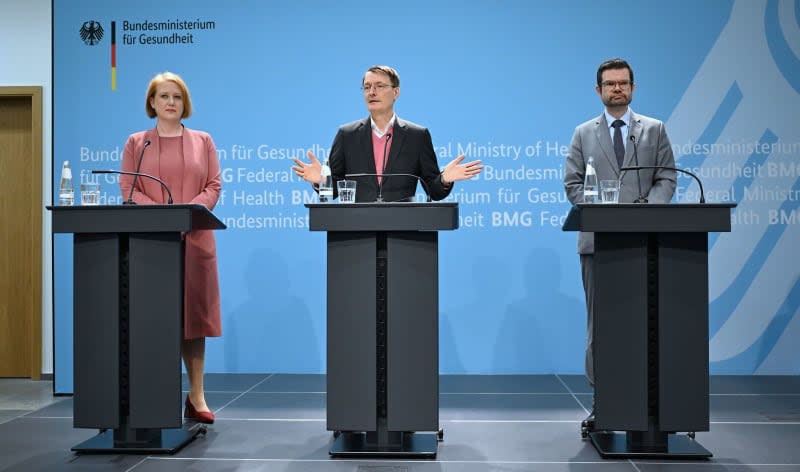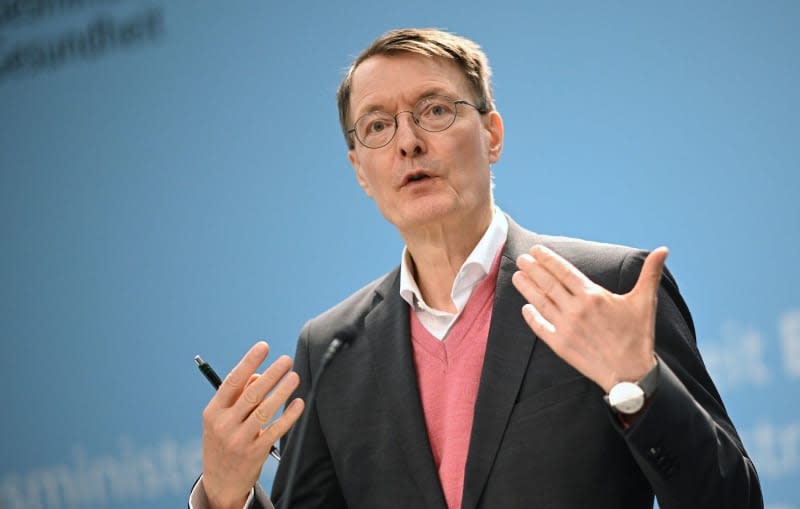Experts recommend decriminalizing early-phase abortion in Germany

- Oops!Something went wrong.Please try again later.
- Oops!Something went wrong.Please try again later.
- Oops!Something went wrong.Please try again later.
Abortions should no longer be a criminal offence in Germany, a commission of experts appointed by the German government has said.
"In the early phase of pregnancy (...) the legislator should allow abortion with the woman's consent," reads the summary of a report by the commission, which was presented in Berlin on Monday.
At present, abortions are possible in the early stages of pregnancy - within the first 12 weeks - on condition that the woman undergoes counselling beforehand. Abortions are also permissible if there are certain medical reasons or following rape.
However, these situations are defined as exceptions in the Criminal Code, which otherwise stipulates abortion a criminal offence.
Chancellor Olaf Scholz's three-party government had agreed in their coalition deal to set up a commission to examine the extent to which abortions could be regulated outside of the penal code.
"The fundamental illegality of abortion in the early stages of pregnancy (...) is not tenable. The legislator should take action here and make abortion legal and unpunishable," Liane Wörner, the commission's coordinator on the topic, said on Monday.
Although abortion is currently exempt from punishment under certain conditions, "it is still marked as unlawful," said the deputy coordinator, Frauke Brosius-Gersdorf, criticizing the current rule.
A change is not simply a formality, she added. For the women concerned, it makes a big difference whether what they are doing is legal or illegal, she said. "It also has an impact on the obligation of statutory health insurers to provide benefits."
The commission was also tasked with examining the possibility of legalizing egg donation and surrogacy. In their report, the experts considered both to be permissible under certain circumstances.
In the case of egg donation, this would be the case "provided it rests on a legal basis that guarantees the necessary protection of the donor and the welfare of the child in particular," they say.
Germany and Luxembourg are the only EU countries in which egg donation is still prohibited, said Claudia Wiesemann from the University of Göttingen, the coordinator for the topic in the commission.
As with sperm donation, it was important to safeguard the child's right to know its origins, she noted.
According to the commission, surrogacy could be authorized in certain cases, "provided that the protection of the surrogate mother and the child's welfare are sufficiently guaranteed."
Speaking to journalists in Berlin following the release of the report on Monday, deputy government spokesman Christiane Hoffmann said no new regulations are expected in the near future.
Different interests had to be weighed up against each other, she said. "And we want to hold a debate that will ultimately help us move forward on this issue, and that is not something that can be conducted under time pressure and 'let's do it very quickly now'. That would really be the wrong approach."
Justice Minister Marco Buschmann said on Monday that the federal government would thoroughly analyse the 600-page report and examine the constitutional and international legal arguments. "What we don't need are debates that set society on fire or even divide it," he said.
Health Minister Karl Lauterbach said that the commission's expertise would be a significant help in answering the complex ethical questions surrounding reproductive self-determination and reproductive medicine. "Ultimately, however, this requires a broad social and, of course, parliamentary consensus."
Minister for Family Affairs Lisa Paus called the commission's recommendations a good basis for an open and fact-based discourse that was now necessary.
According to a survey, a majority of the population is in favour of legalizing abortions within the first 12 weeks of pregnancy.
A total of 72% of those surveyed were in favour of legalizing abortion without restrictions during this period, according to a poll by opinion research institute Forsa commissioned by broadcaster RTL/ntv and published on Monday.
Support is highest among supporters of the Green Party, a junior partner in the government coalition, at 82%, and lowest among supporters of the far-right Alternative for Germany (AfD) at 55%.


